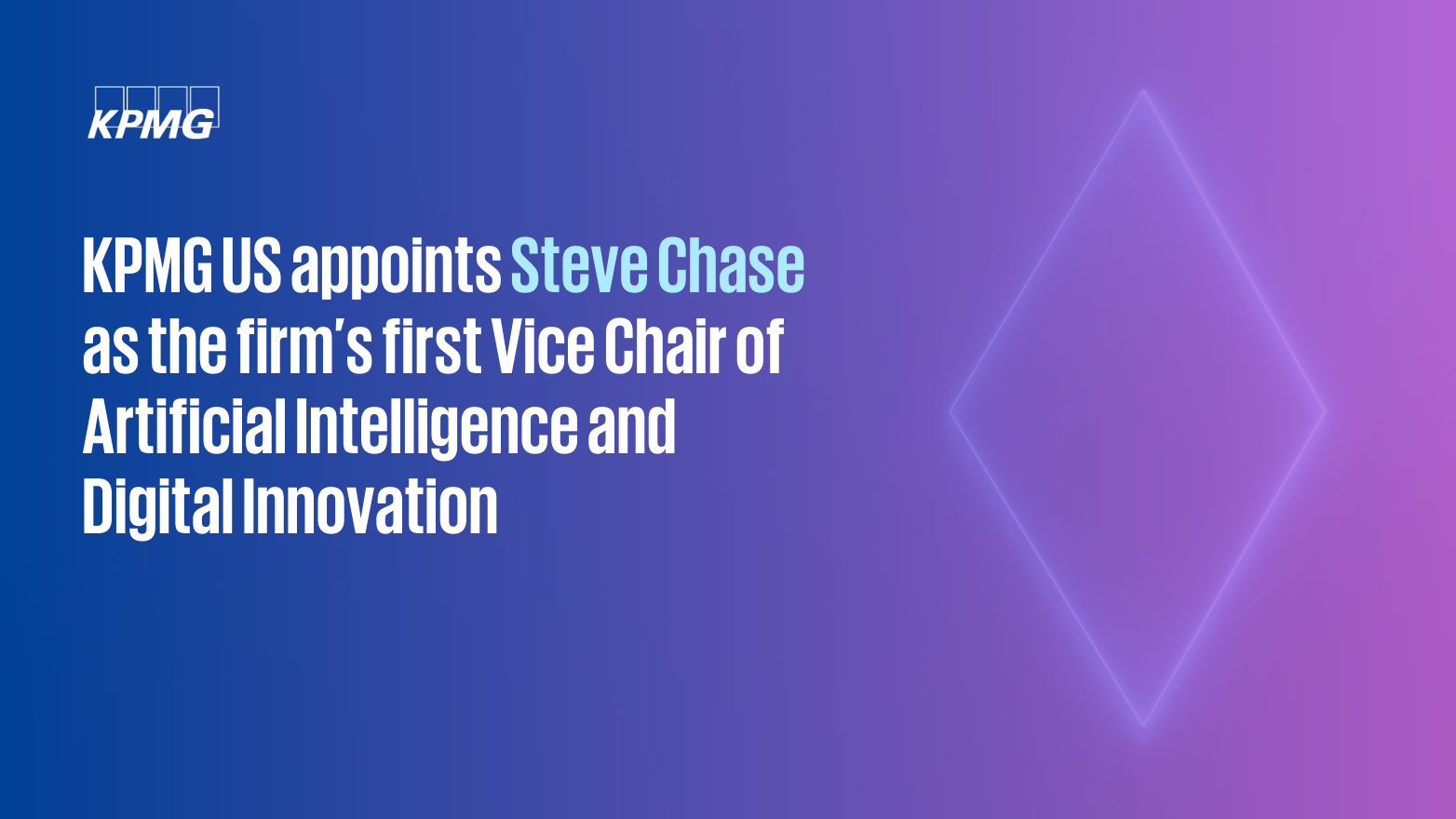KPMG Survey: Majority of US businesses say they have not seen an increase in performance or profitability from digital transformation investments
Almost half say transformation progress is hampered by workforce issues
The majority of US businesses say they have not seen an increase in performance or profitability from digital transformation investments in the last two years, even though a majority say that ROI has exceeded expectations on some metrics, a new KPMG survey has found.
According to the survey of 400 US technology executives, 51 percent of respondents on average have not seen an increase in performance or profitability from digital transformation investments. At the same time, 56% of executives say that ROI for digital transformation initiatives has exceeded expectations on the following metrics: improving efficiency and cost cutting; increasing employee productivity; and enhancing customer engagement.
“We expect to see significant profitability and performance gains as many leading organizations enter into the later stages of digital transformations undertaken in recent years. It is critical that CEOs not take those gains for granted. To maintain a competitive advantage, they must maintain a clear transformation strategy especially now given the prominence of AI and the pace of technological advancements,” said Atif Zaim, National Managing Principal at KPMG and incoming US Consulting Leader. “Companies that lack a sustainable digital transformation vision will eventually be exposed, either through poor customer experiences, lack of investor buy-in, low employee adoption, or wasted spending.”
Buy-in for Emerging Tech Skyrockets, but Workforce Issues the Top Hurdle
The survey found that the number of businesses with leadership buy-in for emerging tech has more than tripled since last year from 10 percent to 32 percent, suggesting that businesses are becoming more open to investing in emerging technologies to drive growth and innovation. Nevertheless, 65 percent say in comparison to last year, they are expected to do more with less budget.
“Executives continue to show a tremendous interest in driving investments towards emerging technologies but doing so in a climate of reduced budgets will be difficult,” said Steve Chase, KPMG’s newly named Vice Chair of AI and Digital Innovation. “The most successful businesses are likely to be those that focus on harnessing value from their investments – encompassing both cost-saving efficiencies and new revenue streams. If they get it right, near-term savings can effectively fuel and sustain future investments.”
Workforce and culture issues represented the top hurdles for transformation progress, specifically: collaboration breakdown (47 percent), skills gap (41 percent), and risk-averse culture (40 percent). The survey also found that 61 percent of US businesses think their technology function needs to get better at helping the board understand the potential of new technologies.
AI is Top Technology for Short-term Ambitions, but Execs Less Certain about Implementation
The survey found that AI is seen as the most important technology for achieving short-term ambitions, with 52 percent of US businesses citing it as the most important technology. Robotics/automation comes in second at 45 percent, followed by VR/AR including the metaverse at 43 percent.
However, the survey also found that companies are less certain about AI implementation compared to last year due to the advent of generative AI.
“Businesses understand the promise of generative AI and the value it will have in the short term, but the uncertainty is causing executives to pause,” said Barry Brunsman, Principal of CIO Advisory at KPMG. "However, with the right guidance and support, businesses can overcome this uncertainty and fully realize the potential of generative AI for their organizations."
The survey found that the biggest trigger for digital transformation in US businesses is regulatory obligations or security concerns at 56 percent. In second place is converting prospects into customers at 53 percent, followed by fast-tracking employee productivity at 48 percent.
Managing Risks Early is a Top Priority
The survey found that 63 percent agree that managing risk at early stages (security and control by design) significantly increases the success rates of transformation programs.
The top risk priority for US businesses is to meet the increasingly demanding regulatory requirements for cybersecurity (54%). This is followed by 52 percent saying reinforcing the trust that customers and clients have in cybersecurity and protection, followed by the third risk priority at 50 percent which is to build resilience to be able to recover from an attack quickly and with minimal impact. Keeping up with cybersecurity regulations is the top tech risk goal for US tech function.
"Managing cyber risks early is crucial for the success of transformation programs, and improving cybersecurity and privacy not only protects the organization, but also helps provide a loyalty-winning customer experience,” said Kyle Kappel, US Leader for Cyber. "By prioritizing cybersecurity and privacy, organizations can build trust with their customers and establish a competitive advantage in the market."
Regulatory Developments Affect Confidence
The top factors affecting US business’ confidence levels are complex regulatory developments at 66 percent, lack of understanding or trust in new technologies at 65 percent, and geopolitical volatility at 65 percent. The survey found that 31 percent say that, to a great extent, complex regulatory developments made their business less confident about investing in new technology.
“When embarking on a digital transformation journey, it's crucial to prioritize building trust with stakeholders including regulators,” said Emily Frolick, Trusted Imperative Leader, KPMG LLP. “By doing so, organizations can navigate risks more effectively, build stakeholder confidence in new technology, and ensure that their digital transformation efforts are successful in driving growth and profitability. Ultimately, businesses that prioritize trust are more likely to achieve positive outcomes from their transformations and enjoy sustainable long-term success.”
The Bottom Line
Todd Lohr, US Technology Consulting Leader, summed up the findings by saying, “There is still work to be done to ensure that businesses are getting the most out of their investments. By addressing workforce issues, investing in emerging technologies, and managing risk at early stages, US businesses can continue to drive growth and innovation in the digital age.”
Respondents were from businesses with $100 million in revenue or above. The research was conducted from April to June 2023.
About KPMG LLP
KPMG LLP is the U.S. firm of the KPMG global organization of independent professional services firms providing audit, tax and advisory services. The KPMG global organization operates in 143 countries and territories and has more than 265,000 people working in member firms around the world. Each KPMG firm is a legally distinct and separate entity and describes itself as such. KPMG International Limited is a private English company limited by guarantee. KPMG International Limited and its related entities do not provide services to clients.
KPMG is widely recognized for being a great place to work and build a career. Our people share a sense of purpose in the work we do, and a strong commitment to community service, inclusion and diversity and eradicating childhood illiteracy. Learn more at www.kpmg.com/us.
Dive into our thinking:
2023 Technology Survey
Download PDFExplore more

KPMG Commits to Building a Future of Artificial Intelligence with Salesforce
The audit, tax, and advisory firm is one of the first to take part in the Salesforce’s Einstein for Developers program and will bring Salesforce AI to joint clients

KPMG Establishes New AI and Digital Innovation Group
KPMG LLP announced the establishment of an AI and Digital Innovation group led by a newly named Vice Chair, Steve Chase. Read more.

KPMG to Advance and Scale Generative AI Technologies for its Clients and Talent
KPMG announces a new initiative to deploy a series of generative artificial intelligence (AI) investments and alliances to empower its workforce, further advance cutting-edge client solutions and reimagine how the 125-year-old firm operates.
